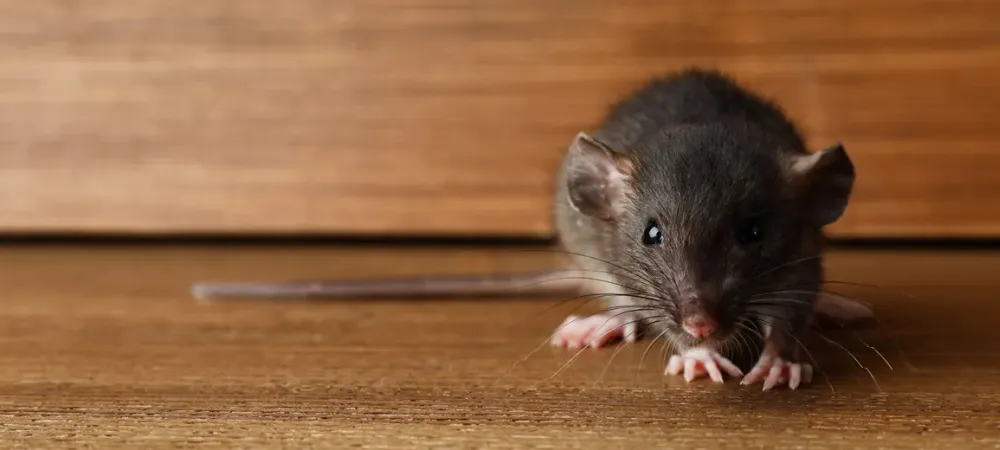7 Pests That Move Indoors for Winter

As temperatures drop, pests start searching for a warm, safe place to ride out the winter months. Unfortunately, your home offers everything they’re looking for: food, water, and shelter. From rodents to insects, these intruders can create big problems if they make it inside.
When winter hits, rodents, spiders, ants, and other pests often invade homes to escape the cold. Learn how to spot the most common winter pests and what you can do to keep them out, keep your home clean, and keep your family safe.
Table of Contents
- Why Do Pests Invade in Winter?
- 7 Pests That Move Indoors for Winter
- 7 Prevention Tips to Keep The Pests Out
- Common FAQs
- When to Call a Pest Control Professional
Why Do Pests Invade in Winter?
Many critters seek warmth, food, and water during the winter. Even tiny cracks around windows, doors, or your foundation can serve as entryways. Once inside, they settle in quiet areas like basements, attics, and crawl spaces. While many people assume cold weather kills pests and nuisance wildlife, the opposite can be true. Cooler temperatures often drive them indoors, where they’re protected from predators, have easier access to food, and can thrive in the warmth of your home.
7 Pests That Move Indoors for Winter
Here are the most common pests to watch for when the weather turns cold:
- Mice: These small rodents can squeeze through openings as small as a dime. Once inside, they chew on wires, contaminate food, and leave droppings.
- Rats: Larger than mice but just as determined, rats often enter basements or garages looking for food and shelter.
- Spiders: Many spider species, like house spiders and cellar spiders, seek out basements, attics, and corners during winter.
- Cockroaches: Cockroaches move indoors to find warmth and moisture, often hiding in kitchens and bathrooms.
- Ants: Certain ant species, like odorous house ants, invade homes to build nests in wall voids or under floors.
- Stink Bugs: These shield-shaped bugs gather on sunny exterior walls and slip inside through tiny openings to hibernate.
- Silverfish: These moisture-loving insects often hide in bathrooms, laundry rooms, and basements during the cold season.
7 Prevention Tips to Keep The Pests Out
Keeping pests out starts with being proactive. By blocking access points and eliminating their favorite hiding spots, you can make your home much less inviting this winter.
- Seal Entry Points – Assess your home for cracks, gaps, and holes around windows, doors, pipes, and foundations. Seal them with caulk or weatherstripping.
- Install Door Sweeps – Block the space under exterior doors where pests could sneak in.
- Store Food Securely – Keep pantry items in airtight containers and clean up crumbs and spills promptly.
- Fix Leaks and Reduce Moisture – Repair dripping faucets and use dehumidifiers in damp areas like basements.
- Trim Vegetation – Keep tree branches, shrubs, and firewood piles away from your home’s exterior.
- Declutter Storage Areas – Get rid of cardboard boxes and clutter in attics, basements, and garages where pests can hide.
- Inspect Holiday Décor and Firewood – Check for pests hiding in boxes or logs before bringing them indoors.
Get ahead of pests and eliminate their favorite hiding spots and welcoming factors. Following winter pest prevention tips and a checklist like this can save you the stress and expense of dealing with an infestation later.
Frequently Asked Questions
Q: What pests invade homes in the winter?
A: Mice, rats, cockroaches, ants, spiders, silverfish, and stink bugs are among the most common cold-weather intruders.
Q: Where do pests hide once inside?
A: They often settle in attics, basements, wall voids, storage boxes, and behind appliances where it’s warm and quiet.
Q: How can I tell if pests are in my home?
A: Look for droppings, gnaw marks, strange odors, and scratching noises coming from walls or ceilings.
Q: Do pests leave when spring arrives?
A: Some, like stink bugs, may leave in warmer months, but others (like rodents) can stay and multiply if not removed.
Q: Are winter pests harmful?
A: Yes, rodents can spread diseases and chew wires, while insects can contaminate food and trigger allergies.
When to Call a Pest Control Professional
While prevention goes a long way, sometimes pests still find a way in. If you notice signs like droppings, gnaw marks, strange odors, or scratching sounds in the walls, it’s time to call in the experts. A professional can quickly identify how pests are getting inside and stop the problem before it gets worse.
Pest control specialists have the tools and training to deal with infestations safely and effectively. They can also examine hard-to-reach areas like crawlspaces and attics where pests often hide unnoticed. Getting help early can save you time, money, and stress in the long run. Winter pests don’t take a break, and neither does Suburban Pest Control. Get in touch with our pest control experts for a free assessment!
